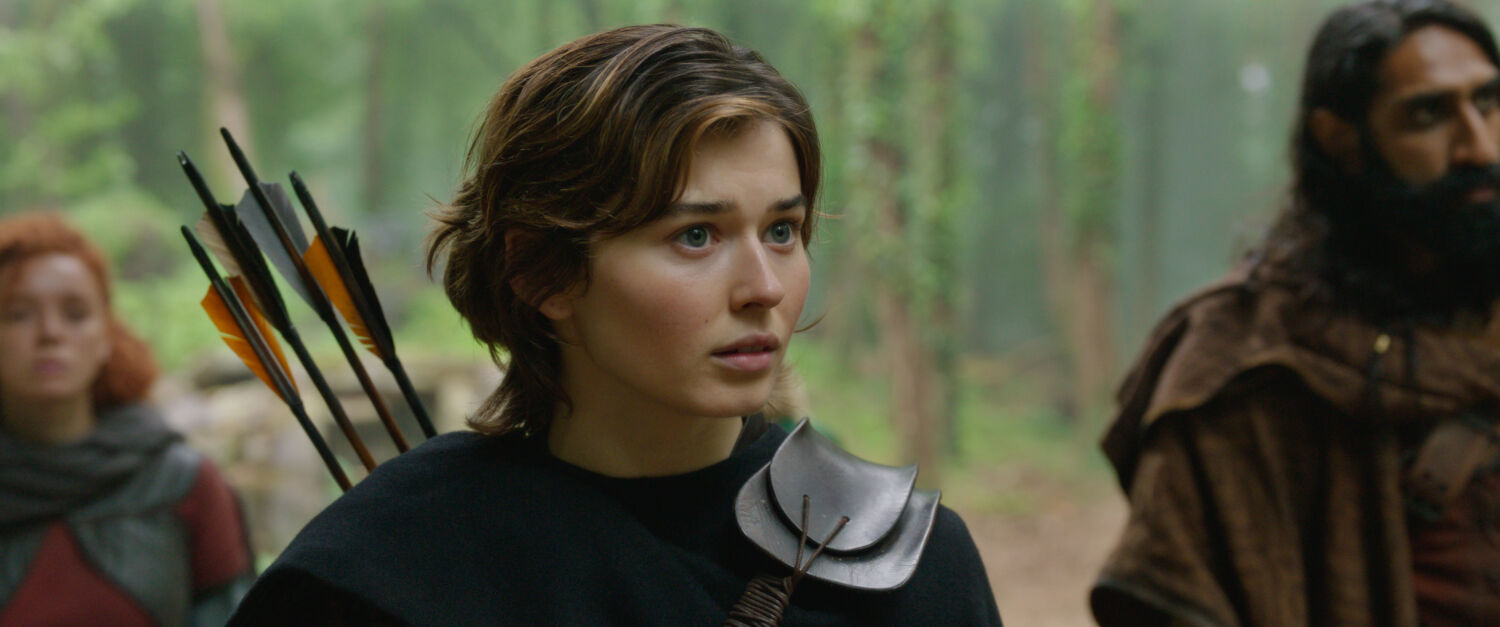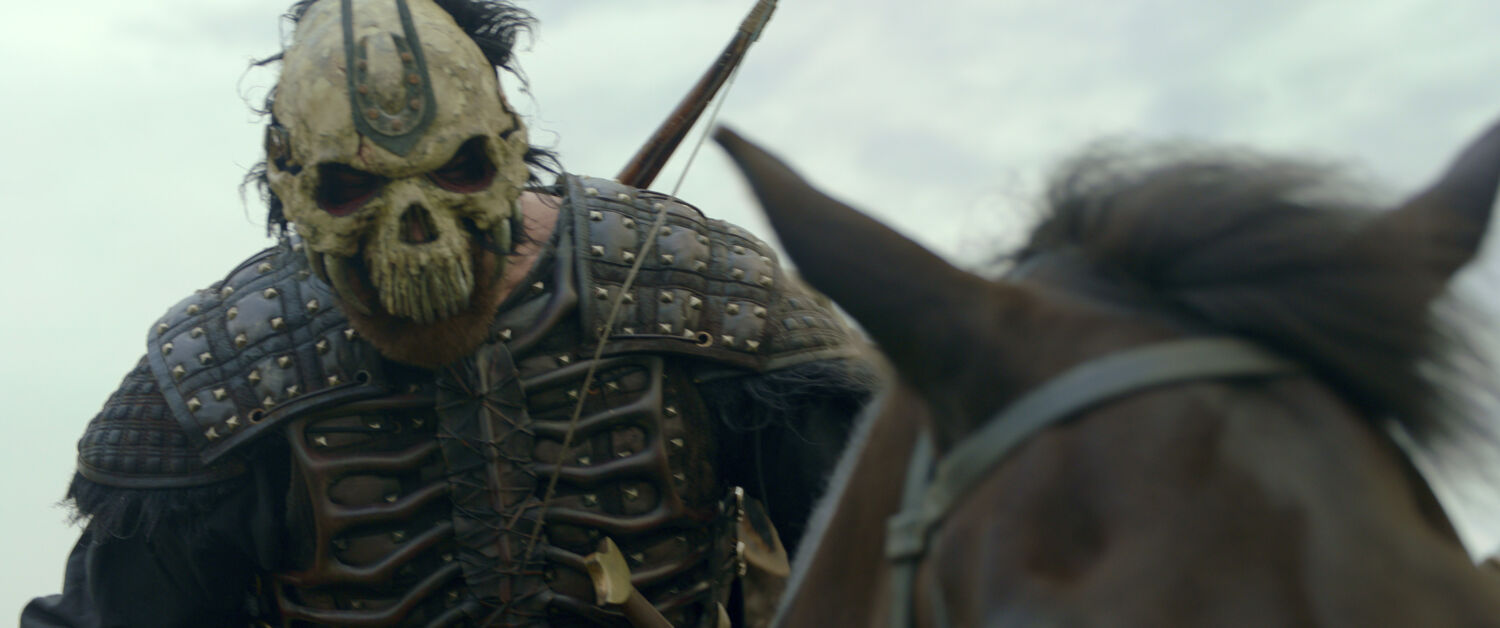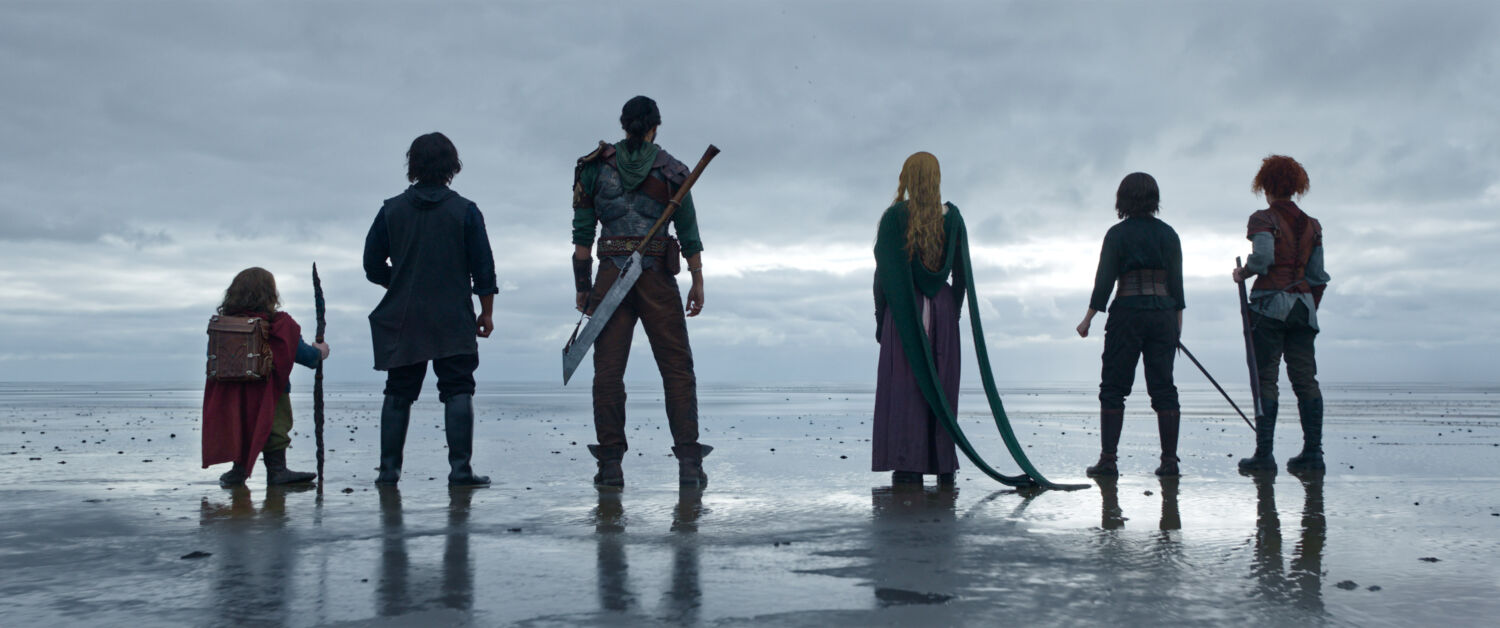Willow review: An enjoyable dark fantasy adventure

This review is based on episodes 1 to 7.
It’s been 34 years since viewers were whisked off to the fantasy world of Willow, joining Willow (Warwick Davis), Madmartigan (Val Kilmer), Sorsha (Joanne Whalley), and the other members of the misfit crew on the journey to defeat the evil sorceress, Queen Bavmorda (Jean Marsh).
The quest took the characters across different lands, but it was also a special effects marvel that pushed the limits of digital morphing technology back then.

But the adventurer’s spirit can never be tamed, especially since evil never sleeps. Combine the two, and it’s only a matter of time before the magical realm of Tir Asleen gets besieged by deadly forces eager to feed on misery and wage destruction yet again. That’s the premise that drives Willow, the Disney+ sequel series to the cult 1988 movie, and sets a new, unlikely group of six heroes on a perilous journey to save their world.
Unlike the original, the fantasy-adventure show doesn’t put a heavy focus on the titular character. Instead, it tells of a coming-of-age story weaved into a hero’s tale inspired by the epic tales of the past, culminating into a high that finds great strength in its sincere characterisation, narrative twists, and humour, though the series is held back by inconsistent pacing and unresolved, and at times, convoluted, plot developments.
Willow opens with a narration by Sorsha, who recounts the events that transpired in the original movie, starting from Willow’s discovery of the foretold Princess of Tir Asleen, Elora Danan, to Bavmorda’s defeat. Some time after things seem to have smoothed over, Willow gets another vision that an ancient evil would rise yet again and destroy Elora, with her end heralding a new dark age. Fearing that worst, Sorsha hides Elora away and conceals her true identity from everyone, including herself.

In the present timeline, the narrative shifts to Sorsha’s daughter Kit (Ruby Cruz), who’s currently engaged in a friendly spar with Jade (Erin Kellyman), a knight-in-training and the former’s best friend. They are then called on to prepare for a royal gala, where Kit, as princess, will have to marry Graydon (Tony Revolori), a young scholar of noble blood, to maintain diplomatic ties.
Elsewhere, Kit’s twin brother Airk (Dempsey Bryk) – likely named after Airk Thaughbaer (Gavan O’Herlihy), the military commander of Galladoorn who shares a mixed friendship with Madmartigan (Val Kilmer), Sorsha’s husband, in the 1988 movie – is caught dallying with Dove (Ellie Bamber). The couple later attends the grandiose event together, but it’s not long before the merry affair is invaded by a group of masked mercenaries, who escapes after capturing Airk and sowing destruction.
In the aftermath, a rescue team is formed with Kit, Jade, Dove, Graydon, Boorman (Amar Chadha-Patel), a thief and swordsman who is offered freedom from prison if he joins the quest, and an expedition commander. Willow joins in at a later time, and the ragtag group of characters soon find themselves on a journey to the Immemorial City, a destination so far beyond Tir Asleen that nobody has ever foot on.
That’s a whole lot of names, so it’s certainly a nice touch that the seven-episode series starts off with an explainer. For newcomers, keeping track of who’s who won’t be easy at the beginning, especially since they will have to catch up with the existing lore and worldbuilding bits, which Willow references fairly frequently. There are also legacy characters like Willow, Sorsha, and in one of the later episodes, brownie duo Rool and Franjean – reprised by actors Kevin Pollak and Rick Overton respectively – to account for, which while a welcome sight, further complicates the blend of past and present knowledge.

Despite the extensive list credit, has to be given to how the six-men crew are able to grow into themselves over the course of the story. Characterisation is easily the greatest strength of Willow, where each character is given their own time to shine or re-examine their dynamics with one another.
The members find their roots in The Breakfast Club, and the melting pot of different personalities carries over well here: Kit is feisty and no-nonsense, while Jade is calm-headed. The laid-back Boorman sports a dry, sarcastic sense of humour, and Dove treats others with empathy.
Their skill sets complement one another as well. Kit, Jade, and Boorman are the weapon-brandishing fighters, whereas Willow, Dove, and Graydon rely more on their magic-casting prowess and intelligence.
These clashing dispositions naturally cause friction and tension between the characters, but Willow is respectful in giving them the room to confront their deep-seated insecurities and engage in meaningful heart-to-heart sessions. Two examples are particularly strong here: Dove and Kit’s development from reluctant allies to mutually-respecting comrades, and Kit and Jade’s relationship from best-friends-in-denial to lovers.
Even the side characters have a lot of charm to them. The third episode introduces two new faces that only appear for a short while, but it’s difficult to forget their presence after their screen time is up. Willow also does a great job at writing women – the female characters are hardly portrayed as damsels-in-distress, and very often, can get one another out of a pinch without the need for a knight in shining armour.
Cruz, Kellyman, and Bamber are all able to play their roles proficiently, striking a fine balance between their characters’ toughness and vulnerability. The only complaint here is that there aren’t enough scenes of Sorsha, who surely is worried about her children, or Airk, who only starts to appear way later.

As much as the series seeks to overturn fantasy conventions, it still retains some of the genre’s classic DNA. The questing structure, along with this extensive character roster, is highly reminiscent of classic heroic sagas that date back to Homer’s The Odyssey and even the Epic of Gilgamesh, with particular emphasis on the themes of wandering, prophecy, and allyship. Coupled with the many traces of fantasy tropes, Willow makes for an enjoyable watch, but suffers mainly from being too generic.
Underneath the veneer of being a sequel to a fan-favourite, albeit old film, Willow can easily pass off as any other fantasy movie: Artemis Fowl, Percy Jackson, The Witcher, Narnia – you name it. It doesn’t have the same identity-defining feature that, say, The Lord of the Rings: The Rings of Power series has, and the main character (possibly because the role is split between three characters) isn’t strong enough to be a standout.
That’s quite unfortunate, as the way that the story unfolds across each episode is quite an exciting affair, even if the story twists along the way are unnecessarily complicated at times. The show’s charming visual effects, just like the original movie, are but an added bonus as well.

Granted, some episodes aren’t as good as the rest. The pilot episode, for instance, has messy action sequences that can be difficult to follow, while the sixth feels a little lengthy, and that’s because there are multiple directors helming the series.
For the most part, however, Willow’s darker, more gritty approach to the original’s whimsical tone is a welcome change, and serves as an accurate representation of war where there are casualties and deaths. More notably, it allows for a sudden, impactful switch from a lighthearted moment to a serious one.
Indeed, each episode of Willow goes from 0 to 100 really quickly. There are plenty of humorous, downtime, and relatable moments, such as when Dove struggles to pronounce the ancient spells accurately (seriously, what’s up with their spelling), but it introduces the action so out of the blue that it ends up being a near jump scare. In almost every scenario, a cliffhanger can be expected as well.

The ending of the seventh episode sets up an epic stage for the final run, and hopefully it’s one that leads to a satisfactory resolution and doesn’t raise more questions than answers, especially with some of the unexplained plot points. While the story does make an effort to address some new developments, there are times where it uses magic as an explanation for certain happenings, which feels too much like a cop-out.
At the end of it all, Willow honours the adventurer’s spirit of the original, and presents a charming, modern take on the well-trodden path of self-discovery, camaraderie, and fate. It stumbles a little in its quest to tell a bigger story, but charms with its rich cast of characters, who breathes life into an otherwise standard fantasy story to bridge the gap between returning fans and newcomers.

The first two episodes of Willow are now streaming on Disney+, with subsequent episodes released on a weekly basis.
Willow is an enjoyable dark fantasy adventure with excellent characterisation, but needs to carve out a distinct identity in order to stand out in the genre landscape.
7.5/10
This article was first published in Geek Culture.